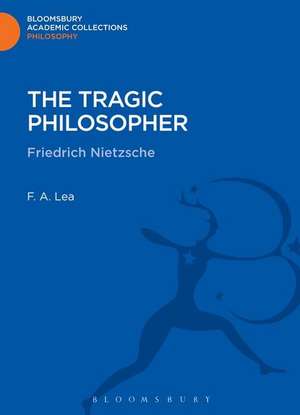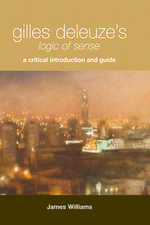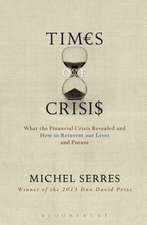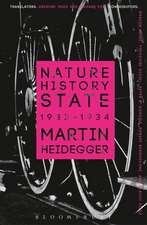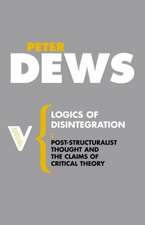The Tragic Philosopher: Friedrich Nietzsche: Bloomsbury Academic Collections: Philosophy
Autor F. A. Leaen Limba Engleză Hardback – 6 noi 2013
Preț: 835.11 lei
Preț vechi: 1067.48 lei
-22% Nou
Puncte Express: 1253
Preț estimativ în valută:
159.82€ • 165.10$ • 133.01£
159.82€ • 165.10$ • 133.01£
Carte tipărită la comandă
Livrare economică 25 martie-08 aprilie
Preluare comenzi: 021 569.72.76
Specificații
ISBN-13: 9781472514851
ISBN-10: 1472514858
Pagini: 354
Dimensiuni: 156 x 234 x 21 mm
Greutate: 0.68 kg
Editura: Bloomsbury Publishing
Colecția Bloomsbury Academic
Seria Bloomsbury Academic Collections: Philosophy
Locul publicării:London, United Kingdom
ISBN-10: 1472514858
Pagini: 354
Dimensiuni: 156 x 234 x 21 mm
Greutate: 0.68 kg
Editura: Bloomsbury Publishing
Colecția Bloomsbury Academic
Seria Bloomsbury Academic Collections: Philosophy
Locul publicării:London, United Kingdom
Cuprins
PrefaceForewordFirst Movement: RomanticismI The IdealistII The HellenistIII The EducationistIV The HumanistSecond Movement: The Conquest of NihilismV The ScepticVI The PhysicianVII The VisionaryVIII The ProphetThird Movement: The Transvaluation of all ValuesIX The MythologistX The CosmologistXI The RevolutionistXII The AntichristIndex
Recenzii
"This is one of the very few books on Nietzsche which, with its noble and passionate style, does justice to its subject. Lea traces Nietzsche's development with great clarity, often disagreeing with him, but always showing a deep understanding of and sympathy for his heroic attempts to diagnose our condition, and propose drastic remedies." -- Michael Tanner, Corpus Christi College, Cambridge
"His book is illuminating, and gives new interpretation of Nietzsche's thought and the problems which possessed him, some of which are still real." -- Edwin Muir, The Observer
"We must be grateful for this admirable exposition of the most challenging thinker of the modern world." -- G. Wilson Knight, the Yorkshire Post
"His book is illuminating, and gives new interpretation of Nietzsche's thought and the problems which possessed him, some of which are still real." -- Edwin Muir, The Observer
"We must be grateful for this admirable exposition of the most challenging thinker of the modern world." -- G. Wilson Knight, the Yorkshire Post
